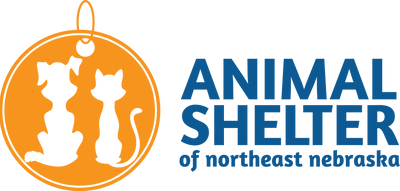Separation anxiety
Starting Off On the Right Paw — Preventing Separation Anxiety
It’s normal for your new dog to want attention and want to be with you. We want to be sure he doesn’t get too dependent, however, since that isn’t healthy. When a dog gets so dependent on his people that he becomes frantic when they leave and can no longer handle being alone, this can lead to a condition called “separation anxiety.”
There are things you can do right off the bat to help prevent separation anxiety.
• Stick to a schedule right from the start. If you stay home from work for a couple days to be with your new family member, then go back to work, this could be confusing to your dog. He will be showered with attention at first, get used to it, and then his new friend disappears! Try to establish a regular schedule from the beginning, so it won’t be such a startling transition for your new dog. If you do take off work, be sure to leave the house a couple times so he gets used to being alone. (Since he is getting used to a new environment, it’s a good idea to confine him when you leave the house.)
• Don’t overdo the attention. Of course you’re excited to bring your new dog home! You want to make him feel right at home and give him tons of attention. If he had a troubled past, you may feel you want to “make it up to him” somehow. You may already be planning to invite over family and friends to meet your new friend. Your intentions are great, but this could actually cause a problem for your dog. If you overdo the attention at the beginning, it’s bound to fade as you settle into your routines. This could prove to be confusing to your dog. So pace yourself. You’ll have plenty of time to introduce your dog to everyone and give him affection. He’s your new lifetime companion!
Now, if your dog whines and gets a bit agitated when you leave the room, don’t worry. That isn’t separation anxiety. True separation anxiety has specific symptoms:
• Panicked vocalizations – The dog may howl, bark frantically, whine frantically or make other noises. The dog will sound like he’s panicking and extremely upset.
• Elimination – The dog will pee and/or poop when left alone. He may have diarrhea.
• Drooling – This is a sign of extreme stress. If there are puddles on the floor and they aren’t urine, they are likely puddles of drool.
• Destructive behavior – Dogs chew for many reasons, but one of them is stress. A dog that is panicking about being left alone will chew excessively, to the point of destroying property. They will chew especially around doorways and sometimes windows.
• Self-injury – A dog with separation anxiety will hurt himself to try and escape his confinement and try and find his people. Dogs have been known to gnaw through doors or crates, jump through glass doors or crash through windows.
• Anorexia – Dogs with separation anxiety will usually not eat when left alone. So if you leave them a food-stuffed Kong, they will ignore it.
The symptoms of separation anxiety can also mean different things, so if you suspect your dog is developing separation anxiety, please consult your veterinarian. A veterinarian should make the diagnosis to make sure you’re not actually dealing with other issues.
